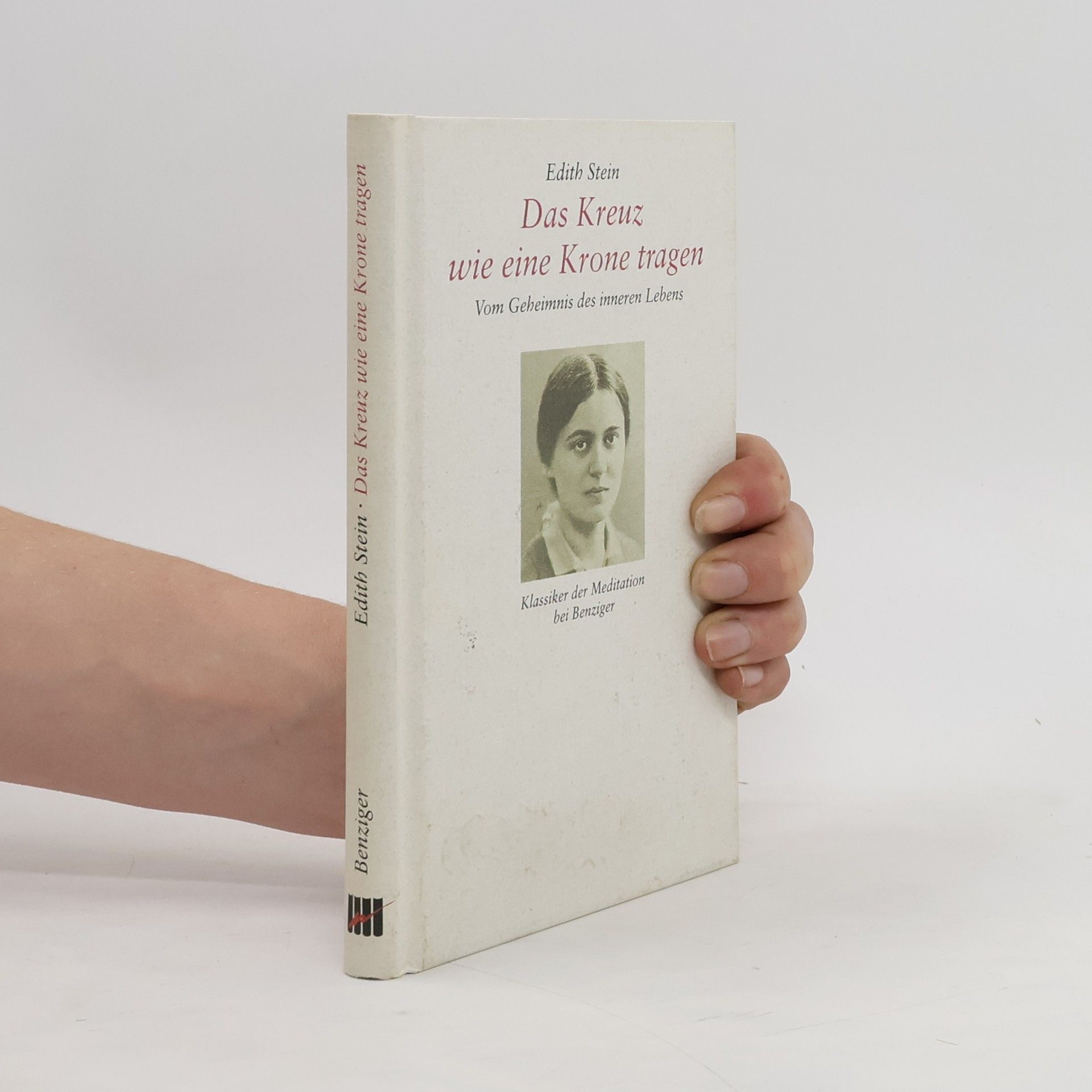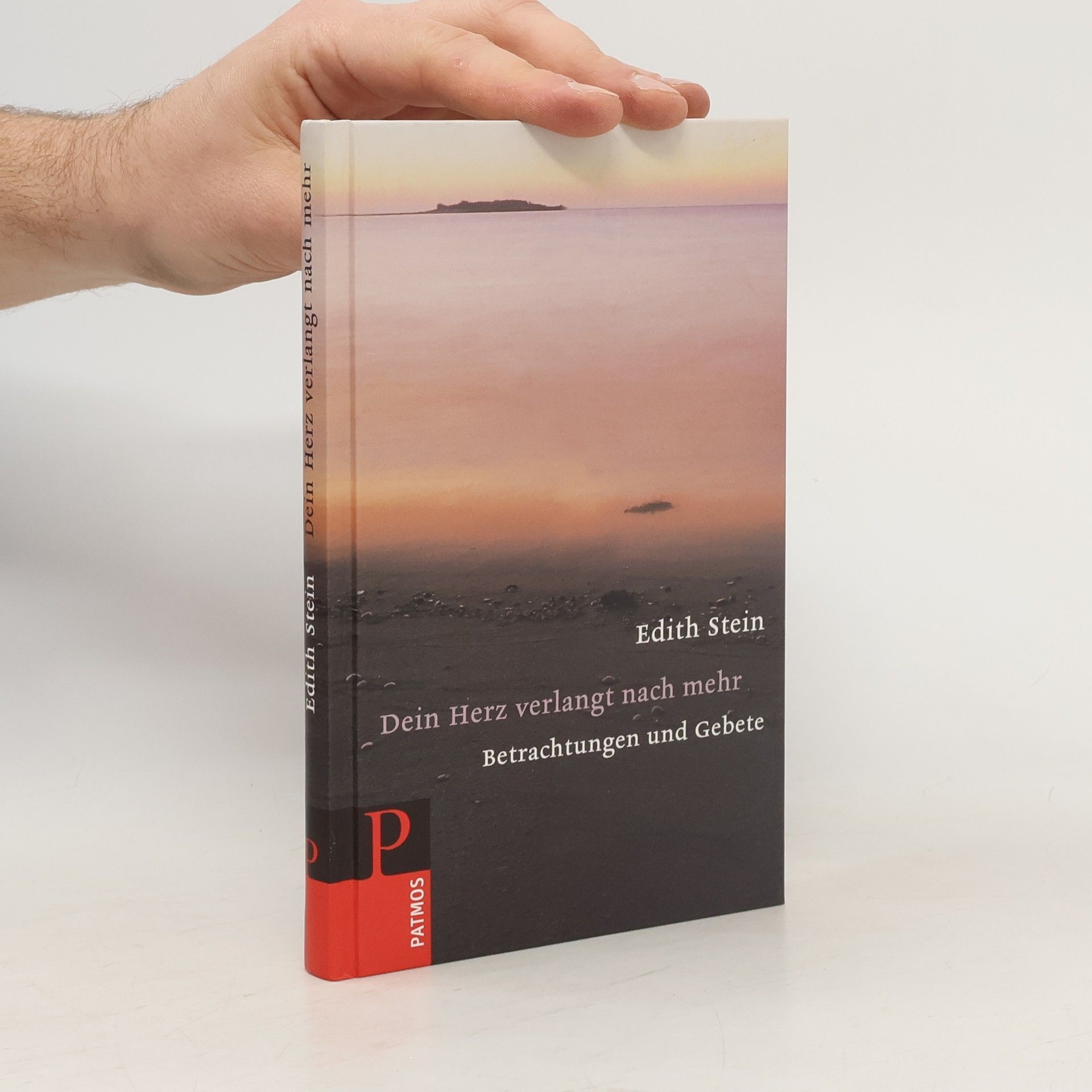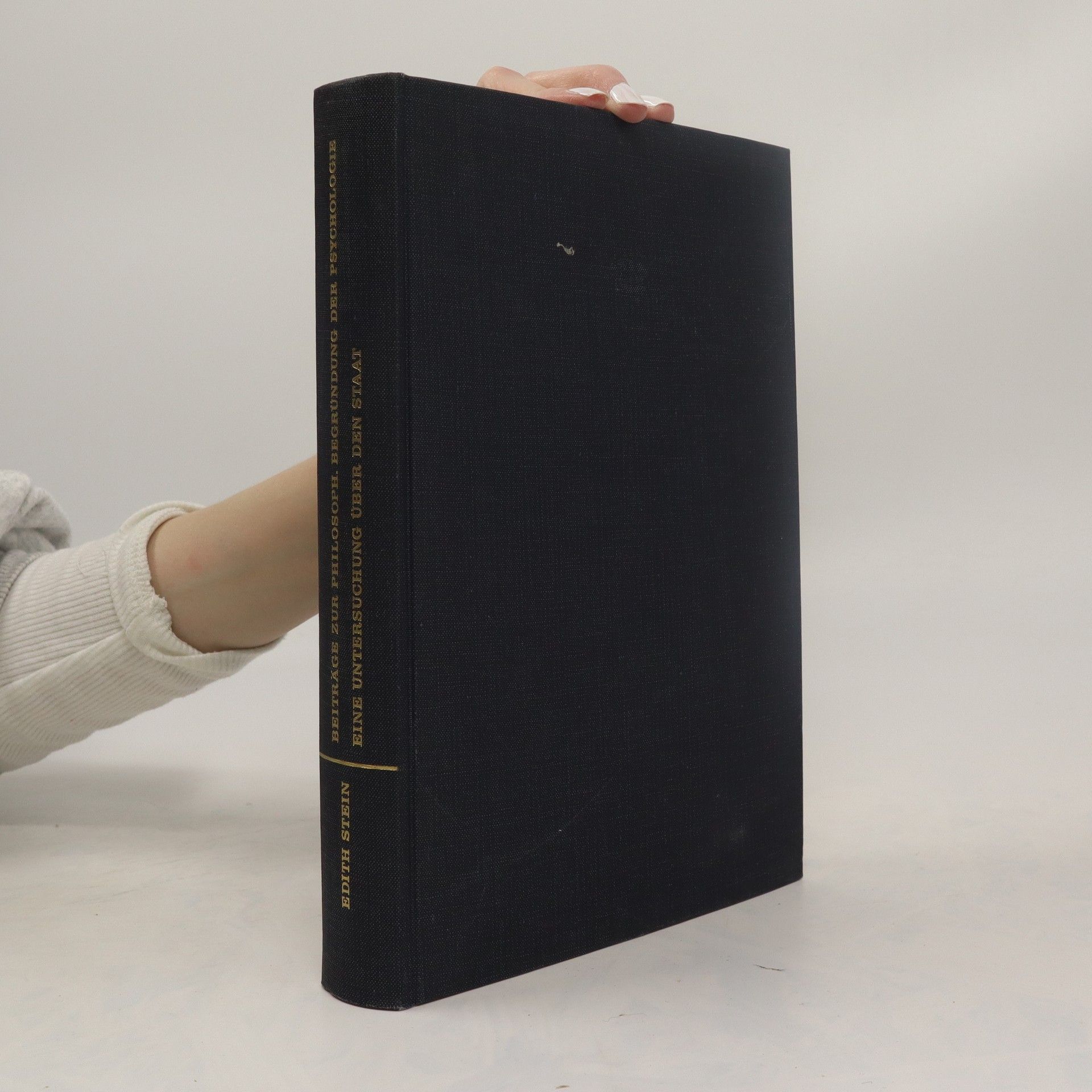Edith Stein and Roman Ingarden, both students of Edmund Husserl, maintained an extensive correspondence from 1917 to 1938, comprising 162 letters, most published here for the first time. Their friendship, which spanned their adult lives, is illuminated through Stein's letters, chronicling her journey from student days to her conversion from Judaism to Catholicism, her professional life, and her choice to become a Carmelite nun in Cologne, adopting the name Teresa Benedicta of the Cross. The correspondence concludes in 1938, as the Nazi threat escalated in Eastern Europe, complicating communication across borders. Four years later, Stein was arrested by the Nazi SS in the Netherlands, transported to Auschwitz, and killed in the gas chambers, while Ingarden survived the war, continued his academic pursuits in Poland, and passed away in 1970. Although Ingarden's letters to Stein are lost, her letters provide insights into his life, intellectual development, and the editorial support she offered for his German publications. Translated by Dr. Hugh Candler Hunt, this premiere English edition offers a fascinating glimpse into Stein's life, showcasing her warmth, humor, and profound intellectual and spiritual depth. The volume includes 13 photos, a bibliography, and an index.
Edith Stein Books
Edith Stein was a German Jewish philosopher whose intellectual journey took her from the faith of her ancestors through atheism to profound devotion to the Roman Catholic Church. As a Carmelite nun, her life became an embodiment of philosophical inquiry into truth and faith. Her work delves into the profound questions of human existence and the search for meaning amidst suffering. She serves as an inspiration to those seeking to connect reason and spirituality.

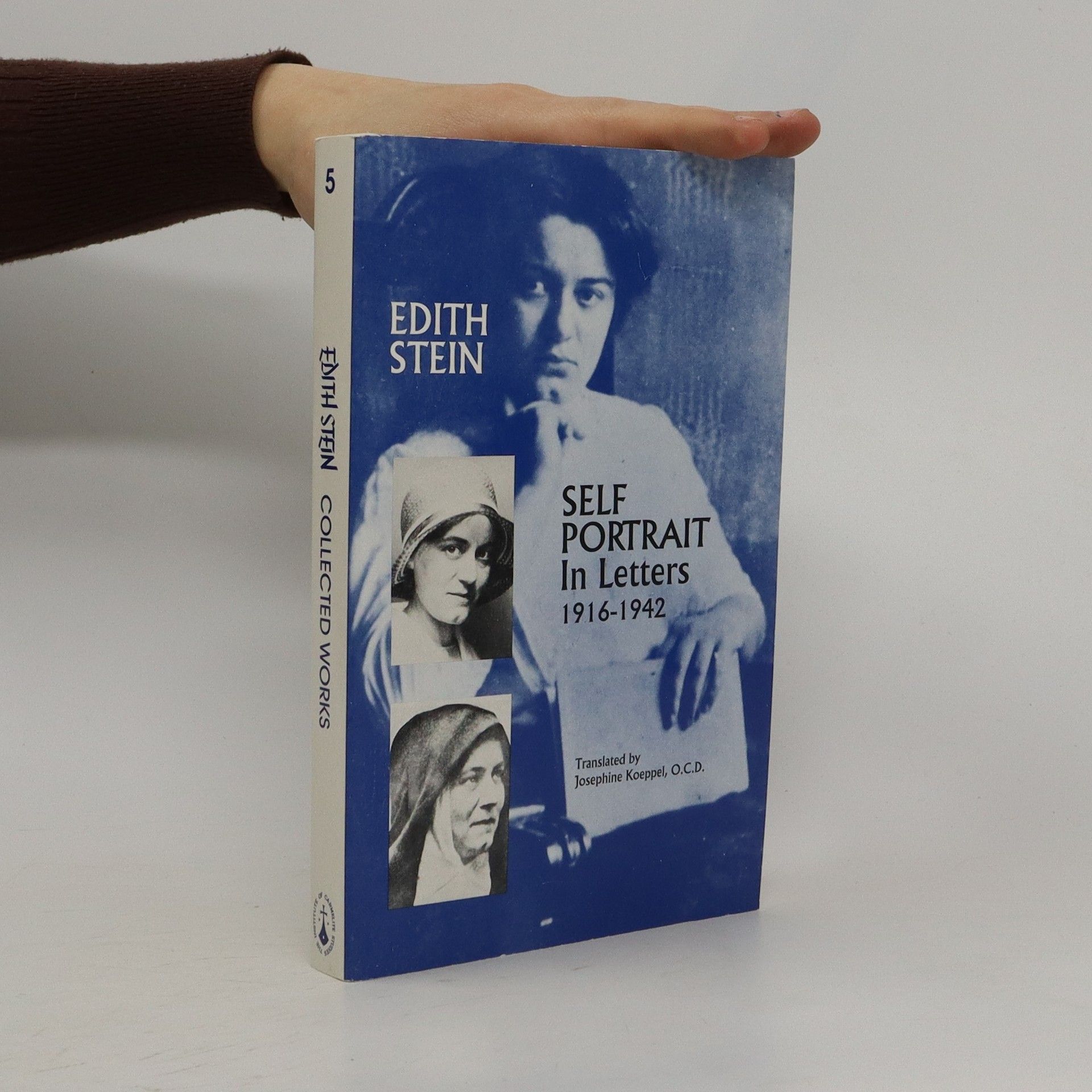


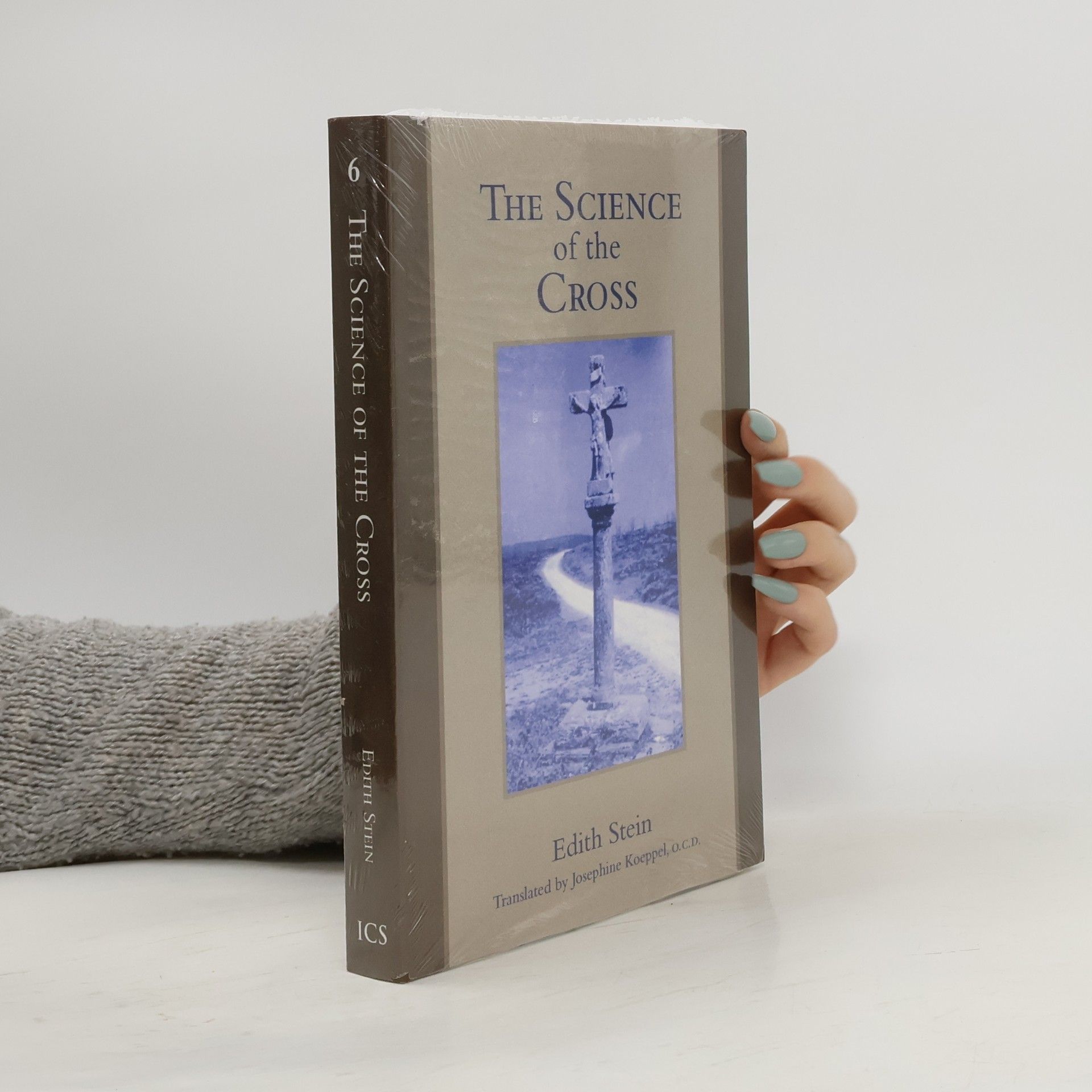
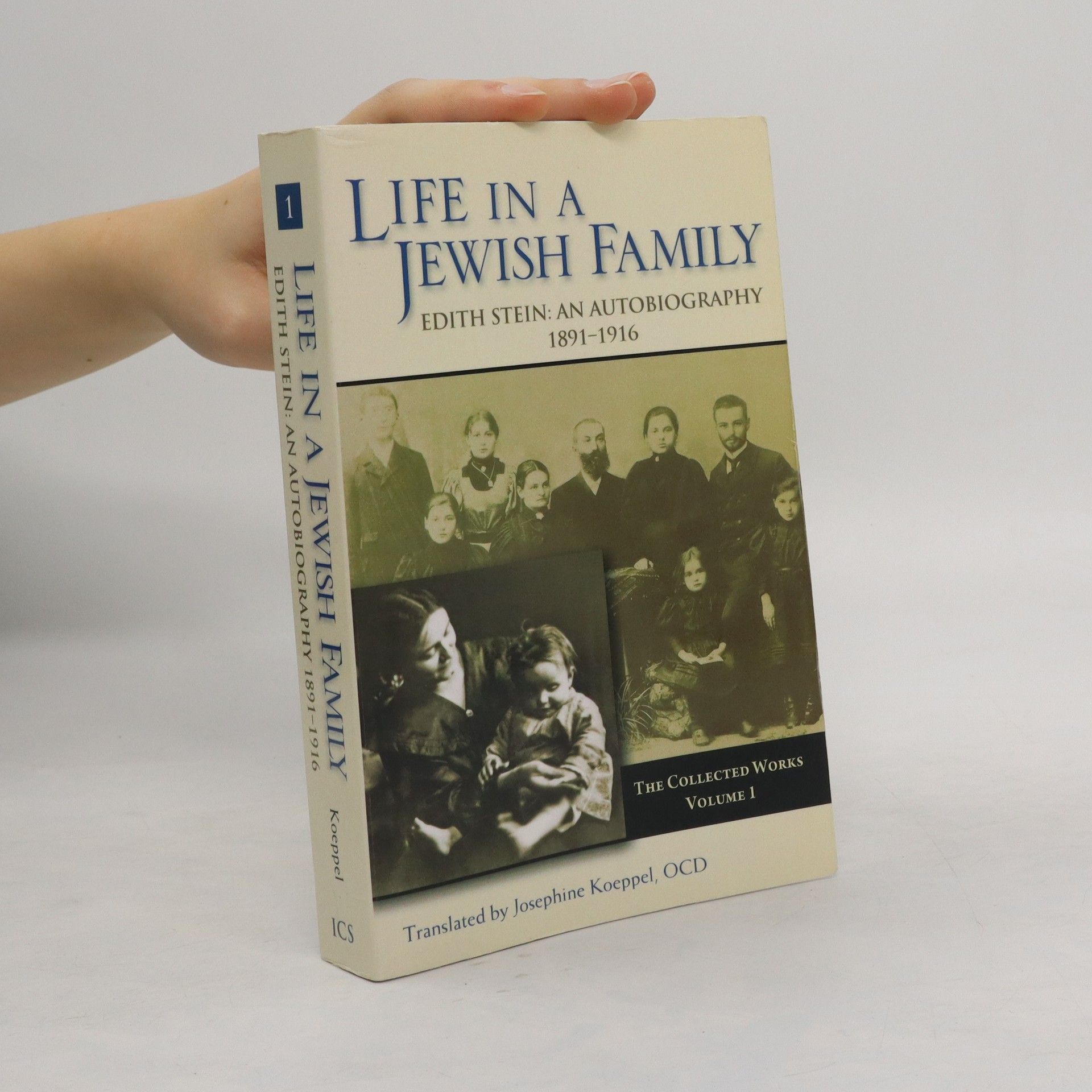
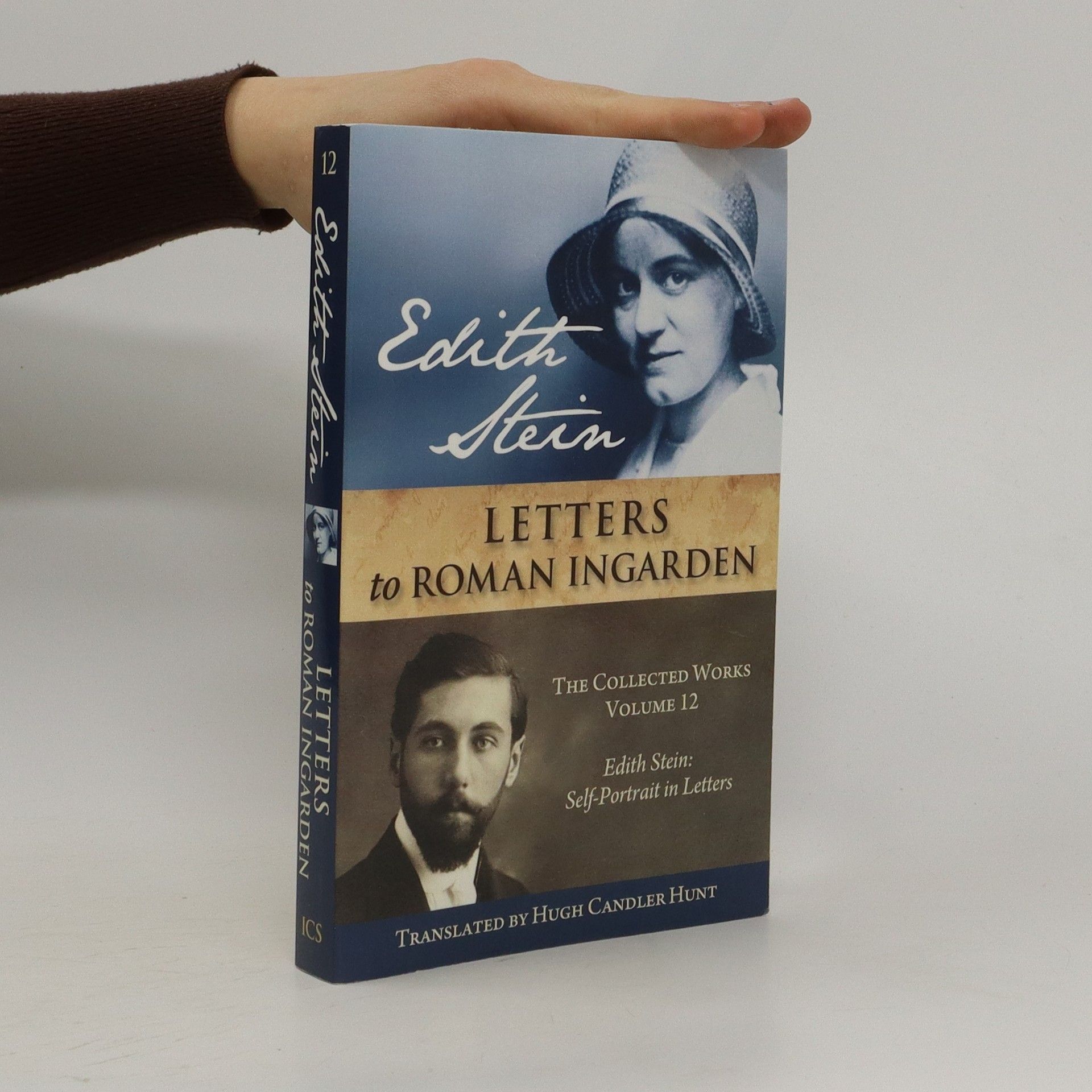
Life in a Jewish Family
- 548 pages
- 20 hours of reading
Edith Stein: Life in Jewish Family - The Collected Works of Edith Stein, Vol. One By Edith Stein, translated by Josephine Koeppel, OCD. Edith Stein's autobiography, with map and 11 pages of photos. This initial volume of the Collected Works offers, for the first time in English, Edith Stein's unabridged autobiography depicting herself as a child and a young adult. Her text breaks abruptly because the Gestapo arrested and deported her to Auschwitz in 1942. Edith Stein is one of the most significant German women of our century. At the age of twenty-five she became the first assistant to the founder of phenomenology, Edmund Husserl. She was much in demand as a writer-lecturer after her conversion from atheism to Catholicism. Later, as a Carmelite nun, she maintained her intellectual pursuits, until she died along with so many other Jewish people in the Holocaust. By making this story available in English, the Institute of Carmelite Studies provides an eye-witness account of persons and activities on the scene at the time when psychology and philosophy became separate disciplines. A preface, foreword, and afterword to Edith's text brings out many background details of the rich story she has left us. "A splendid translation, filled with a deep understanding of Edith Stein." - Cistercian Studies
The Science of the Cross
- 358 pages
- 13 hours of reading
To celebrate the fourth centenary of St. John of the Cross's birth in 1542, Edith Stein was tasked with preparing a study of his writings. Utilizing her philosophical skills, she reflects on the symbols of the cross and night, illustrating how entering the night equates to carrying the cross. Her analysis condenses John's thoughts on the active and passive nights from *The Ascent of Mount Carmel* and *The Dark Night*, ultimately leading to the glory of resurrection shared through unitive contemplation, primarily discussed in *The Living Flame of Love*. In the summer of 1942, the Nazis arrested Edith, and her profound manuscript was found open in her room. After fleeing to Holland for safety, she faced renewed danger with the Nazi invasion. Her superiors assigned her the study of St. John of the Cross to distract her from the looming threat. Given her circumstances, the theme of the cross became central to her work, allowing her to explore John's unity of being as reflected in his life and writings. Through her phenomenological training, she elucidates the symbolic differences between the cross and night, emphasizing that detachment is a necessary night for the soul's union with God. She describes the spiritual marriage as a surrender of the inmost regions of both God and the soul, where mortal existence is consumed by eternal love, guiding the spirit from the cross of Christ to the glory of resurrection.
An Investigation Concerning the State
- 202 pages
- 8 hours of reading
"Any state exists only for the benefit of human beings. this basic tenet of Edith Stein's political thought rests on her conviction that humanity is fundamentally one community, precious beyond measure. Differences of race, culture, and language offer us means to grasp the values of life uniquely so that we may share them universally, reaching across all such social boundaries. ..... " [from back cover]
Potency and act
- 576 pages
- 21 hours of reading
Edith Stein comes alive through these warm, totally attentive letters. She joins a deeply sensitive heart with her keen intelligence, revealing herself to be a wise mentor and a caring friend available to anyone who approached her. Here we learn what was truly important to her: the total well-being of those who treasured her letters enough to preserve them even while suffering the havoc of war and oppression. This volume offers the first English translation of the majority of her surviving letters, with 4 photos and an index of recipients.
Chemins vers le silence intérieur
- 77 pages
- 3 hours of reading
"La recherche de la vérité traverse la vie et l'oeuvre d'Edith Stein. Sa rencontre avec Dieu, puis son baptême, ont orienté résolument cette quête, et lui donnent tout son sens. De l'université de Gôttingen au Carmel d'Echt, sa vie et sa pensée s'enracinent dans une intériorité qui puise à la source de toute spiritualité, en Dieu lui-même. Ce recueil de pensées se veut une invitation à la méditation et au silence intérieur, conditions préalables à un retour au plus profond de l'être, là où Dieu parle en secret à l'âme. La mystique que nous propose Edith dans ces chemins vers le silence intérieur est un itinéraire spirituel praticable par tous." Vincent Aucante
Edith Steins Lebensweg, geprägt von jüdischen Wurzeln, führte sie über eine atheistische Studienzeit und philosophische Ausbildung zum christlichen Glauben und Ordensleben. Ihre Texte vereinen zeitgenössische Spiritualität, Kreuzesmystik und aktives Handeln, selbst in extremen Situationen. Sie verbindet einzigartig jüdischen und christlichen Glauben.
Edith Stein, Jüdin und Christin, verbindet in ihren Texten Spiritualität mit aktivem Handeln, selbst in schwierigen Zeiten. Ihr Werk wird hier kompakt präsentiert, mit einer Einführung in ihr Leben und Denken sowie einer Auswahl ihrer geistlichen Texte, die durch Erläuterungen ergänzt werden.
Die drei gewichtigen BeitrAge von Edith Stein fA1/4r Husserls JahrbA1/4cher werden hier in einem Band vereinigt und auf diese Weise gesondert zugAnglich gemacht. In der Abhandlung A1/4ber APsychische KausalitAtA verdient besonders Edith Steins Begriff der doppelten, AsinnlichenA und Ageistigen LebenskraftA Beachtung, denn hier zeigt sich das Individuum eingegliedert in den grAAeren natA1/4rlichen und geistigen Zusammenhang des sozialen Lebens, aus und in dem es lebt und seine KrAfte nimmt. Dieser Gedanke enthAlt schon den Ansatz der zweiten Abhandlung A1/4ber AIndividuum und GemeinschaftA. Die Gemeinschaft als reale Lebensgemeinschaft der Individuen hat AA1/4berindividuelle ErlebnisstrAmeA, AA1/4berindividuelle MotivationenA und ein Agemeinsames DenkenA und wird darin fA1/4r die Aichlichen GehalteA konstitutiv. Die AUntersuchung A1/4ber den StaatA zieht diese Linien weiter aus. Der Staat wird als ein soziales Gebilde begriffen, in dem das Zusammenleben sich in objektiven, von verschiedenen Individuen nacheinander A1/4bernehmbaren Formen organisiert. Zentral fA1/4r Edith Steins Interpretation ist die SouverAnitAt des Staates, der sich selber konstituiert und durch eine ihn reprAsentierende Staatsgewalt als Aletzter Urheber aller seiner Aktionen sowie alles in ihm geltenden RechtsA beweist.

